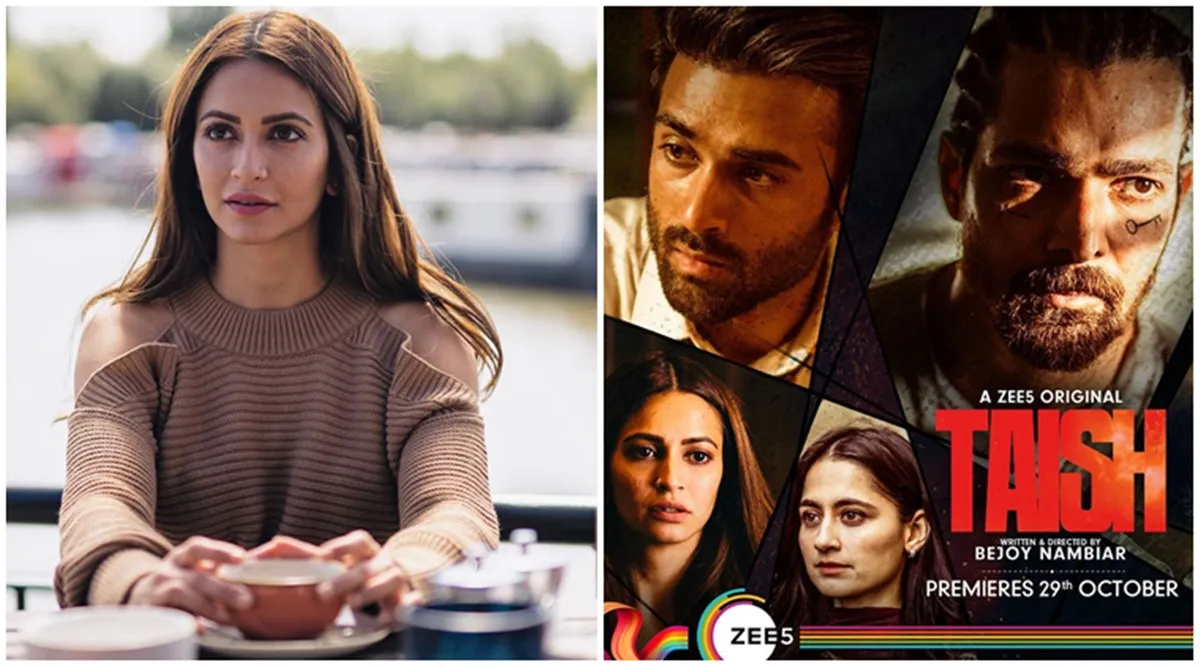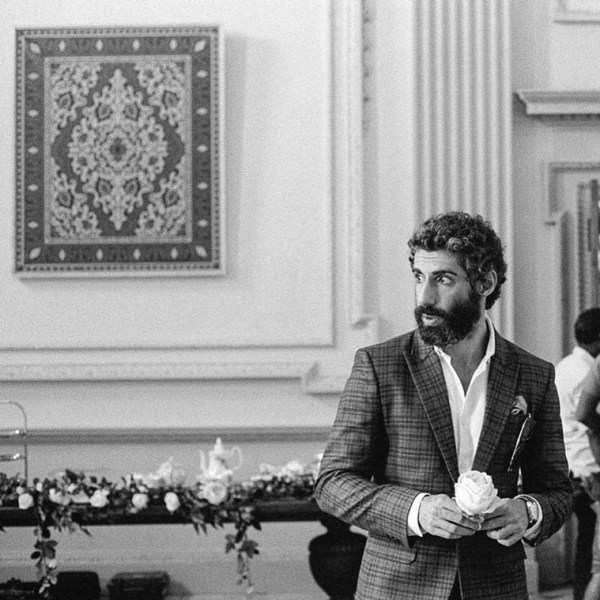 Kriti Kharbanda praises Taish director Bejoy Nambiar for making actors on set feel secure. (Photo: Instagram/kritikharbanda)
Kriti Kharbanda praises Taish director Bejoy Nambiar for making actors on set feel secure. (Photo: Instagram/kritikharbanda)Kriti Kharbanda says her experience of filming Taish was empowering primarily because neither Bejoy Nambiar’s script favoured any character nor did the filmmaker treat anyone differently on the set, which was populated by multiple stars.
Taish, which also features Jim Sarbh, Pulkit Samrat, Harshvardhan Rane and Sanjeeda Sheikh, is streaming on ZEE5. The revenge drama, written by Bejoy Nambiar, Kartik R Iyer, Anjali Nair and Gunjit Chopra, is available both as a film and a web series.
In an interview with the indianexpress.com, the primary cast weighed in on how the industry constantly feeds insecurity to an actor in the name of competition, resulting in fewer artistes opting for ensemble films.
Kriti Kharbanda said that actors would have to rise above insecurities and selfishness to understand that a film cannot be made without the contribution of each of them, regardless of their screen time.
“Every person has to come together to reach the climax. And everyone, whether they speak one line or 10, they are leaving an impact. That’s the intention. Now it’s up to us as human beings. Some of us are insecure; some are selfish. These are different emotions that we all share. The idea is to try and rise above them. It’s easier said than done. And the only way to do that is you need to give yourself enough credit where it’s due. So that you don’t compare yourself to anyone else.”
On Taish’s set, Kriti said the cast was secure enough to revel in each other’s performance.
She said, “Everyone had their issues and were dealing with their own stuff, but when we all came together on that dinner table or for the evening tea, we were all ourselves and gave that liberty to each other to be ourselves. That’s what translated on screen because no one was trying to put down each other’s performance. We were trying to enhance it.”
Kriti Kharbanda believes besides an actor’s assessment of his or her own feelings, what also holds value is the sensitivity with which a director handles the artistes.
“A lot rides on your director. If my director doesn’t make me feel secure, I will never reach that place of security. Bejoy never undermined any character. No actor treated each other differently because they weren’t treated differently, and that’s what resulted in equality,” she said.
Jim Sarbh commented that many times an actor is forced to entertain insecurities because of the nature of the scripts that often include multiple characters only to serve the protagonists.
“Often when you read scripts, the focus is so much on the two leads that it does start to play on your mind and affect you. Eventually, you are like, ‘I want to play the lead just so that my story is supported the whole way through. I want people to see the film through my eyes and I don’t have to win them over with my amazing acting. They are on my side already just by the nature of the story.’
 Jim Sarbh in a still from Taish. (Photo: Instagram/jimsarbh)
Jim Sarbh in a still from Taish. (Photo: Instagram/jimsarbh)
“It takes the pressure off you, and then you can try to flow naturally and allow scenes to organically happen as opposed to having one scene and thinking that I better go and do all the acting,” Jim remarked.
Showering praise on Bejoy Nambiar, Jim said that not one character in Taish existed to throw light on parts that were longer, which made it an inclusive story to be a part of.
“In the script, we got to understand where each one of the many different characters were coming from. We learnt about them specifically. There wasn’t a random brother at the wedding. The brother was going through his own personal conflict. He didn’t appear there only to shine light upon me or Pulkit or Kriti. When all the characters have their own personal conflicts happening, then the whole world comes alive. Then you don’t mind playing a character, which might be conventionally smaller.”
Jim Sarbh, however, iterated that the onus lies a lot on the actors, whose “egos might not like it in the beginning,” but it’s important for them to break away from the narcissistic conditioning and look at themselves as just a small piece of a big puzzle of a film.
“In any commercial based system, there’s a hierarchy that automatically happens, and over here, there’s a strong star-based system. If only actors could change their minds a little bit from wanting to be a part of this star-based system to wanting to be one piece of a huge mechanism that puts a story out.
“You interviewing us is a part of a hierarchy in a weird way. I maintain that so much is done by Gopika (Gulwadi), who did the costumes, Mandar (Nagaonkar), who was the production designer, and the editor. Everybody is an equal part in the system so if we can change our mind from, ‘I want to be a star,’ to ‘I want to be a part of a great story, I want to help tell a great story,’ then it will help bring a lot of responsibility and contentment to your life. It’s then not about ‘me vs’ but ‘me with’ or ‘and,’” concluded Jim Sarbh.